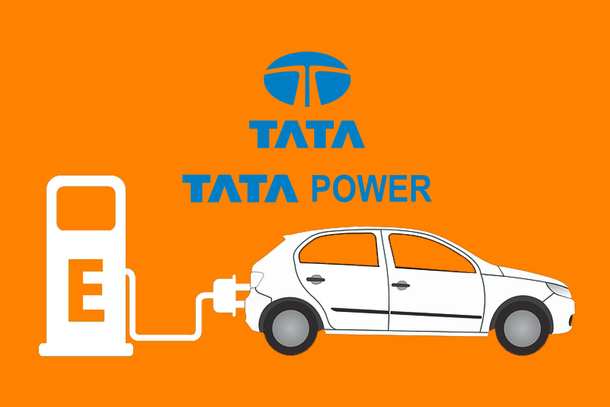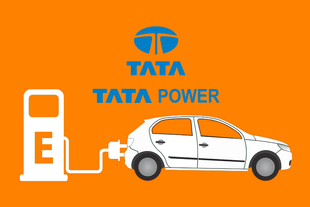News Brief
The EV Switch: Tata Power Installs More Than 1,000 Charging Stations In Over 100 Cities; Targets Total 10,000
Bhaswati Guha Majumder
Oct 26, 2021, 02:22 PM | Updated 02:34 PM IST
Save & read from anywhere!
Bookmark stories for easy access on any device or the Swarajya app.


Tata Power, one of India’s largest integrated private-sector enterprises, currently has a nationwide network of over 1,000 electric vehicles (EV) charging stations. Additionally, there are nearly 10,000 household EV charging stations, making EV charging extremely handy for vehicle owners.
After the first installation in Mumbai, Tata Power EV charging points can now be found in nearly 180 cities across the country, as well as on multiple state and national highways, under a variety of business models and market segments.
The company intends to build a network of 10,000 charging stations around the country to convert entire segments of the highway into e-highways.
Praveer Sinha, who is the CEO and managing director at Tata Power said that the company has achieved the first of many milestones toward allowing the country's EV revolution by successfully deploying over 1,000 EV charging spots in the public domain.
According to Sinha, “This makes Tata Power the country’s largest EV charging solutions provider. Our innovative and collaborative approach has made a significant impact in developing this ecosystem and encouraging EV adoption in the country.”
“We remain committed to playing a key role along with other stakeholders in achieving the national goal of transition to green mobility," he added.
Development Of Electronic Vehicle Charging Infrastructure
Tata Power has partnered with companies such as Tata Motors Limited, MG Motors India Limited, Jaguar Land Rover, TVS and others to provide EV charging infrastructure for their consumers and dealers.
Additionally, e-bus charging is made easier through collaborations with numerous state transportation utilities, boosting the cause of green public transportation. Tata Power also has been working closely with IOCL, HPCL, IGL, MGL and a number of state governments to develop such eco-friendly vehicle charging infrastructure.
With the rise in EV usage, the company has expanded its footprint into the charging industry for electric three-wheelers and two-wheelers. Tata Power and TVS Motor Company, one of the world's largest producers of two- and three-wheeled vehicles, announced a strategic agreement earlier this month to accelerate the deployment of EV Charging Infrastructure or EVCI across India and install solar power technology at TVS Motor facilities.
To advance electric mobility in India, the collaboration plans to build a massive electric two-wheeler charging infrastructure.
Tata Power has recently announced partnerships with HPCL to deliver end-to-end EV charging stations at their retail locations, as well as the real-estate firm Lodha Group for stations in its commercial and residential buildings in Mumbai.
The company has also created a powerful software platform for the clients of EV charging and launched a mobile-based application, called Tata Power EZCharge, to provide a simple, as well as straightforward charging experience to the customers. The app is unique in that it assists people to find stations, charging EVs and making online bill payments.
India’s EV Market
Niti Aayog published a paper titled "India's Electric Mobility Transformation" in April 2019, estimating that by 2030, EV sales penetration in India will be 70 per cent for commercial vehicles, 30 per cent for private vehicles, 40 per cent for buses and 80 per cent for two- and three-wheelers.
If these goals are met it might result in a net reduction of 14 exajoules of energy and 846 million tonnes of CO2 emissions throughout the lifetime of the deployed vehicles. EV sold until 2030 can save 474 million tonnes of oil equivalent, or $207.33 billion, over their lifetime.
While there have been concerns related to the lack of charging stations, Tata Power is trying to make sure that such concerns won’t last for long.
However, several states and Union Territories have developed mobility strategy plans to provide the citizens with safe, inclusive, cost-effective, and environmentally friendly transportation options.
On Monday (25 October), the Gujarat government launched the ‘Go-Green' scheme to supply subsidised electric two-wheelers to construction and industrial workers. This scheme aims to promote the use of EVs, reduce gasoline costs and help the environment by reducing vehicular emissions.





